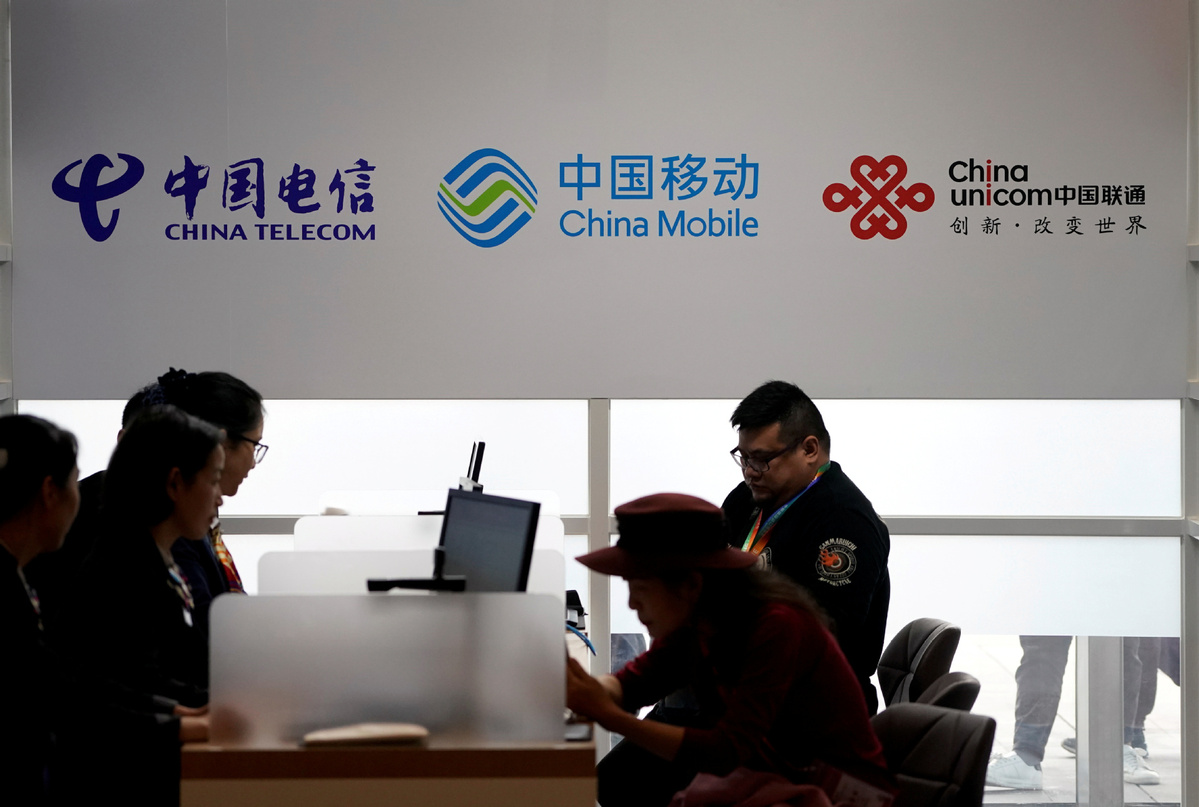NYSE again decides to delist 3 Chinese telecom companies
By HENG WEILI in New York | China Daily Global | Updated: 2021-01-07 12:48

The New York Stock Exchange said Wednesday it now will delist three Chinese telecom companies a day after US Treasury Secretary Steve Mnuchin told the NYSE president that he disagreed with an earlier decision to reverse the delistings.
The latest move, which is effective Monday, marks the third time in less than a week that the NYSE has acted on the matter.
The flip-flopping highlights the confusion over which firms were included in an executive order issued by President Donald Trump in November barring Americans from investing in 35 companies that Washington deems to be associated with the Chinese military.
The NYSE originally announced on Dec 31, New Year's Eve, that it would delist China Mobile Ltd, China Telecom Corp Ltd and China Unicom Hong Kong Ltd. On Monday, after consulting with regulators in connection with the US Treasury's Office of Foreign Assets Control, it decided instead to keep them listed.
Wednesday's decision marks a return to the original plan.
The on-again-off-again-on-again gyrations made for a volatile week in the three stocks. Two of the companies, China Mobile and China Unicom, have been listed on the NYSE since 1997.
"It's like following a tennis match. I can't keep up with the back and forth. Access to capital has been so globalized, though, that I think it is all about politics and would have almost zero impact on the Chinese telcos' ability to raise money from Western investors," Jim Collins, CEO of Excelsior Capital Partners in New York, told China Daily.
It also comes amid an increase in actions aimed at high-profile Chinese companies and software apps in the last days of the Trump administration, including TikTok, WeChat and Alipay.
Derrick Early, an aerospace engineer in Maryland, told The Wall Street Journal that he sold China Mobile shares on Monday at a loss when it appeared that they would be delisted, so he missed out when the stock rallied more than 9 percent the next day.
"I'm so cross with President Trump on the ban, and I'm cross with NYSE on whipsawing their delisting policy," he said.
"It's odd for the NYSE to get this so wrong," said Bloomberg Intelligence analyst Larry Tabb. "Their marketing and public relations team has historically been one of the best. It's bad enough to do a 180 on this within a week, but to go 360 degrees on such a major move so quickly means that they either got this terribly wrong, or there was significant outside pressure driving these decisions."
"There are a lot of political appointees who believe it is their job to push as much anti-China action out before they leave the building, in part to box in the next administration," Scott Flicker, a partner at law firm Paul Hastings, told the Financial Times. "As a practical matter that won't necessarily happen."
Mnuchin has long been perceived as opposed to call by hardliners in the administration, particularly in the State Department, to crack down on Chinese companies.
But sources who asked to remain anonymous said Mnuchin had called NYSE President Stacey Cunningham on Tuesday to express his concerns over the decision to relist the companies, as the exchange sought further confirmation on the matter. Some of the confusion seemed to stem from whether subsidiaries of the 35 companies named should be included in the delistings.
"The Treasury secretary was on the phone with the NYSE (president) now and was told that NYSE would reverse their decision," a US official told Reuters on Tuesday.
On Wednesday, the exchange operator said in a statement its latest decision, to move forward with the delistings, was based on "new specific guidance received on January 5, 2021, that the Department of Treasury's Office of Foreign Assets Control".
Leland Miller, the CEO of the US-based consultancy China Beige Book, said: "There is a unique situation where there is an outgoing administration that is disengaged and (there are) orders sitting out there, so something has to be done, but no one wants to take on responsibility. I think in the future that anyone getting these orders will say: 'Tell us exactly what you want us to do,' and force administrations to be more focused."
Trading in the securities will be suspended at 4 am ET, Monday, Jan 11, the NYSE said.
"After an intense pressure campaign from those of us who believe we should prioritize the interests of American workers and mom and pop investors above Beijing and Wall Street, I am pleased that the NYSE decided to reverse their earlier announcement," Republican Senator Marco Rubio of Florida, a frequent critic of China, said in a statement.
"The NYSE is trying to judge how the political winds are blowing, and it's a pretty confusing situation right now," Dan David, founder of Wolfpack Research, told the Journal.
NYSE-owner Intercontinental Exchange Inc (ICE) is run by billionaire Jeffrey Sprecher. His wife, Kelly Loeffler, also a former ICE executive and a Republican US senator, lost a runoff election for the seat on Tuesday in Georgia to Raphael Warnock.
Reuters contributed to this story.
























